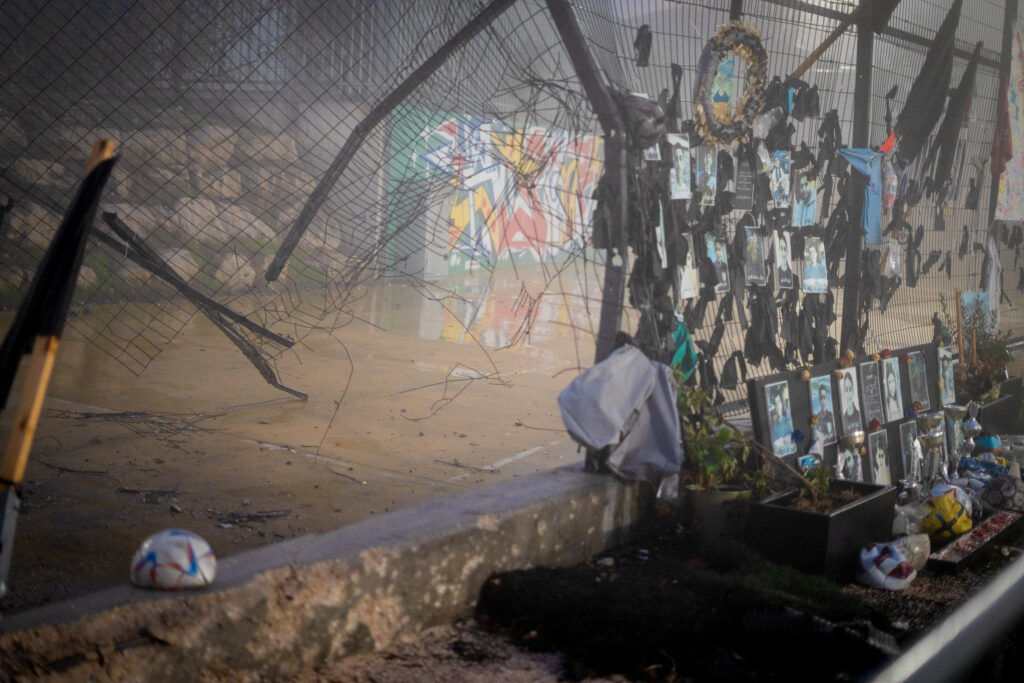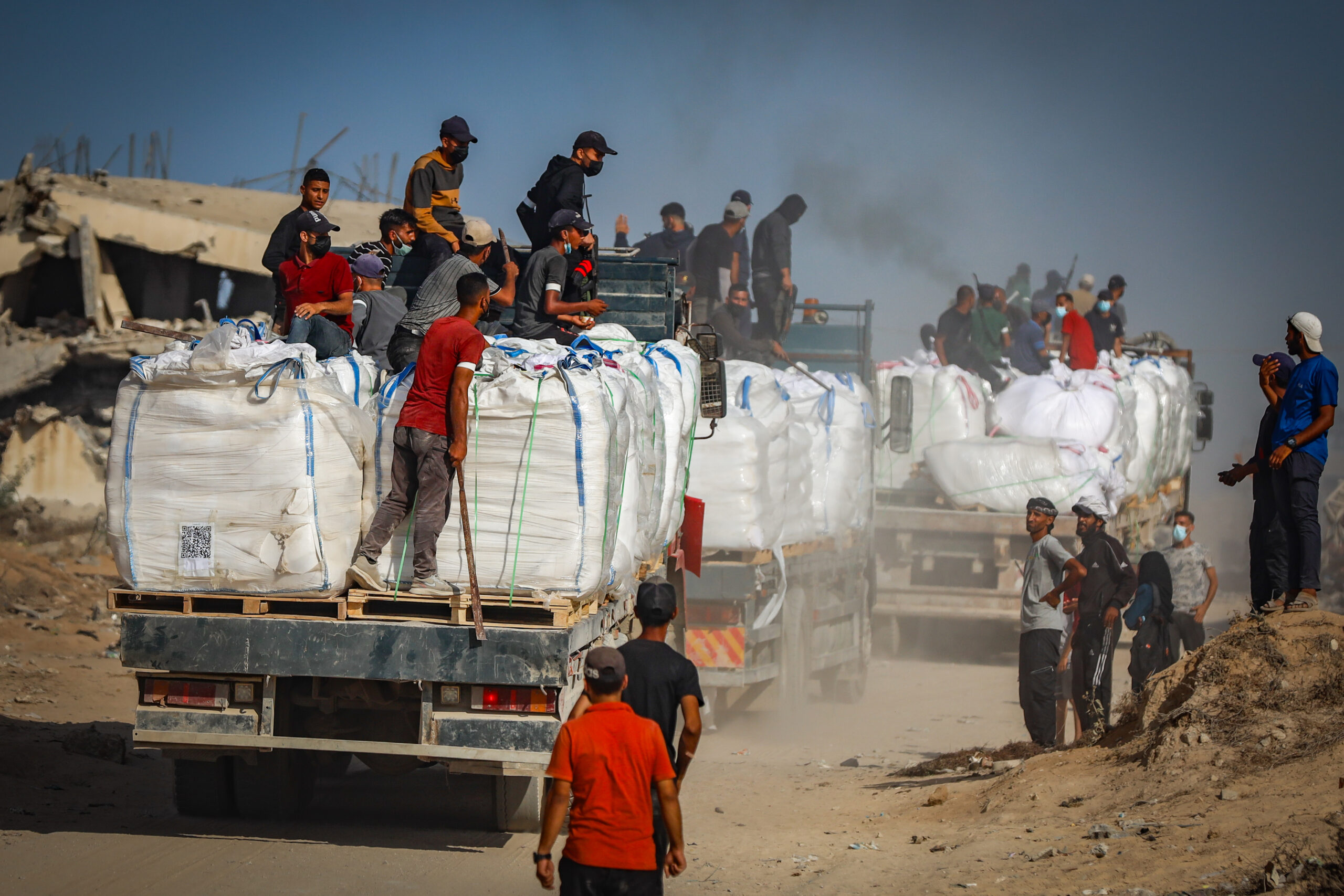UN: Nearly 90% of Gaza Aid Convoys Hijacked Before Reaching Civilians
New data from the United Nations reveals that nearly 9 out of every 10 aid trucks sent into Gaza in recent months never made it to their intended destinations. Of the 2,604 aid trucks that entered the Strip between May 19 and August 5, a staggering 88.7%—or 2,309 trucks—were intercepted, according to figures released by the UN Office for Project Services.
These interceptions were carried out either peacefully by groups of civilians or violently by armed factions operating inside Gaza.
The situation has grown even more dire over time. In June, 90.7% of aid trucks were reportedly diverted, rising to 94% in July. This data stands in contrast to public remarks made by UN Under-Secretary-General Tom Fletcher, who claimed in a recent television interview that “the vast, vast majority” of aid was reaching its destination.
🇺🇳 @UNReliefChief Tom Fletcher: “The vast majority of the aid that we get in, gets to civilians.”
— UN Watch (@UNWatch) August 5, 2025
UN's own figures: Out of 2,010 UN food trucks entering Gaza since May 19, 87% were intercepted by armed groups or crowds. (UNOPS)@UNReliefChief, you may lie—but the numbers don't. pic.twitter.com/ps1dzJjKH5
In response to growing concerns about aid misappropriation, Israel and the United States established the Gaza Humanitarian Foundation in May. The goal: to ensure that food assistance goes directly to civilians, circumventing both the United Nations and Hamas. The Foundation recently marked the delivery of its 100 millionth meal to Palestinian noncombatants.
Meanwhile, the Israel Defense Forces (IDF) have introduced new humanitarian measures aimed at facilitating aid delivery and countering accusations of intentional starvation tactics. These include daily “tactical pauses” in hostilities from 10 a.m. to 8 p.m. in areas like Al-Mawasi, Deir al-Balah, and Gaza City, as well as dedicated humanitarian corridors open from 6 a.m. to 11 p.m.
The IDF stated that over 23,000 tons of humanitarian aid entered Gaza last week alone, with 1,200 trucks successfully collected by UN and other international groups. The military has also signaled its readiness to expand humanitarian efforts further if needed.
Secretary of State Rubio: Hamas Must Be Dismantled for Real Peace
U.S. Secretary of State Marco Rubio is doubling down on the message that true peace in Gaza cannot be achieved without the release of hostages and the elimination of Hamas as a militant force.
Speaking on Fox Business’s Kudlow, Rubio acknowledged the importance of humanitarian aid but stressed that efforts must not lose sight of two urgent priorities: rescuing hostages and dismantling the terror group responsible for their capture.
“We hear a lot about the humanitarian crisis—and we should—but what’s being overlooked is that 20 innocent people are still being held underground by Hamas and are close to dying,” Rubio said. “There’s not enough focus on getting them out or on removing Hamas from the picture entirely.”
.@SecRubio on @larry_kudlow @foxbusiness: “Hamas cannot continue to exist … as long as Hamas exists as an armed group in Gaza there will not be a peaceful future because it's going to happen again — and this can never happen again.” pic.twitter.com/aMOcAMrIU8
— Department of State (@StateDept) August 7, 2025
President Donald Trump has echoed similar sentiments, reportedly insisting that all hostages—living and deceased—must be brought home.
Rubio went on to say that any long-term strategy for Gaza must include the complete disarmament and disbandment of Hamas. “Even the Arab League agrees that Hamas cannot continue to operate,” he said. “As long as they hold power in Gaza, peace will remain out of reach.”
AP Faces Scrutiny for Soft Portrayal of Hezbollah in Attack Survivor Story
A recent Associated Press article chronicling the aftermath of a deadly Israeli strike on Hezbollah operatives has drawn criticism for its portrayal of one fighter as a “survivor”—without mentioning Hezbollah’s long-standing designation as a terrorist group by the U.S.
The feature, spanning over 2,000 words and including a photo essay, focuses on Mahdi Sheri, a 23-year-old Hezbollah member who responded to a pager signal that turned out to be part of a precision Israeli strike. Sheri suffered significant injuries, including the loss of an eye.
Although the AP detailed his physical ordeal—including being treated in Syria and Iraq—the report conspicuously avoids referring to Hezbollah as a terrorist organization. Notably, the United States has officially categorized Hezbollah as a terrorist group for nearly three decades.
The article notes that Sheri, whose vision is now impaired, “can no longer play football” and that Hezbollah is assisting him in finding alternate work. It also states that Sheri understands he likely won’t return to combat.

According to the AP, the September 2024 attack involved the detonation of thousands of pagers distributed to Hezbollah fighters. These devices were allegedly triggered simultaneously by Israel in a demonstration of high-level intelligence capabilities. Israeli Prime Minister Benjamin Netanyahu even gifted a golden pager to President Trump as a symbol of this operation.
Critics argue the report glosses over key context, such as Hezbollah’s nearly year-long rocket attacks on Israeli civilians. While human rights groups raised legal concerns over the pager strike—claiming it may have violated international law due to potential civilian exposure—there was no mention of similar scrutiny regarding Hezbollah’s indiscriminate rocket fire.
Hezbollah, which also operates as a political party and runs a variety of social institutions, acknowledged that most casualties were among its own ranks. However, it declined to provide details on civilian harm, stating that most were relatives or staff at Hezbollah-linked facilities.





